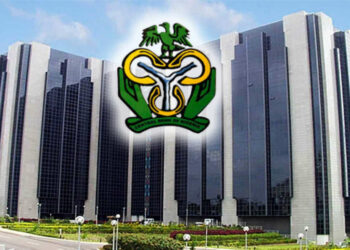Its unaudited results for the third quarter ended September 30, 2024, shows net Interest income which stood at N443.0 billion at the end of the third quarter in 2023, rose impressively by 149 per cent to N1.103 trillion in the period under consideration.
The bank’s financial report filed with the Nigerian Exchange Limited on Monday also indicated a 20.2 per cent increase in Profit before Tax (PBT) to close at N603.48 billion compared to N502.09billion recorded at the end of the third quarter of 2023, while profit after tax also rose remarkably by 16.9 per cent from N449.26 billion recorded a year earlier to N525.31 billion in the period under review.
UBA’s Total Assets in the period under review rose to N31.801 trillion, representing a 54.0 per cent increase over the N20.653 trillion recorded at the end of December 2023, just as the bank benefitted largely from its technology-led initiatives targeted at improving customer experience over the past few years, with Total Deposits rising to N26.50 trillion, representing a 52.7 per cent rise, up from N17.355 trillion at the end of the last financial year.
Its shareholders fund stood at N3.585 trillion up from N2.030 trillion recorded in December 2023, again reflecting a strong capacity for internal capital generation and growth.
Commenting on the result, managing director and chief executive of UBA Grpup, Mr. Oliver Alawuba, expressed pleasure that the Group continues to record strong and sustainable growth in its various revenue streams, building on its strong performance earlier in the year.
“The UBA Group achieved a profit before tax of N603.5 billion and our intermediation business continues to show strong growth with net interest income expanding by 149 per cent YoY to N1.10trillion and NIM closing at 8.03 per cent, which is 17.60 per cent above the 2023 position, despite persisting macroeconomic headwinds, geopolitical tensions, insecurity, inflationary pressure and exchange rate volatilities across our markets,” Alawuba stated.
The bank’s performance has been underpinned by consistent strong growth on all core and sustainable banking income lines, as he added that, “Our substantial investments in technology are yielding tangible business value. This commitment is instrumental in delivering enhanced customer experiences and optimizing operational efficiency.”
The bank’s executive director, Finance & Risk, Ugo Nwaghodoh, said, “I am delighted at the milestone reached in driving operational efficiency, reflected in cost-to-income ratio normalizing around the 50 per cent range. Shareholders’ funds recorded a 77 per cent growth from N2 trillion at FYE2023 to N3.59 trillion demonstrating the Group’s significant capacity for future growth.”
Restrict Foreign Airlines To Lagos or Abuja – Expert Urges Keyamo
BY YUSUF BABALOLA
Renowned aviation expert, Capt. John Ojikutu (rtd), has called on the minister of Aviation and Aerospace Development, Festus Keyamo, to restrict foreign airlines to either Lagos or Abuja and any other airports in Nigeria.
In an exclusive chat with NATIONAL ECONOMY the former commandant of the Murtala Muhammed Airport, Lagos, said this is necessary for domestic airlines to survive and remain in business.
Ojikutu further stated that for domestic airlines to continue to be in business, they must merge or interline with themselves.
He, however, stated that, domestic airlines must look inward to determine profitability of their business plans before venturing into air transportation of passengers or cargo businesses.
“For the domestic airlines to remain in business, they must merge or interline with themselves and with foreign airlines that must be restricted to not more than two airports that must not be Lagos and Abuja.
“First, they don’t all have to go to Abuja and Lagos just as FAAN must not always put the other airports services charges same as in Lagos and Abuja. Domestic Airlines don’t have to operate to Abuja and Lagos where charges should higher than others.
“Government must restrict the foreign airlines to either Lagos or Abuja and not anymore to Lagos and Abuja. The 20 federal airports must be graded in service charges into five, A, B, C, Dr and E. The highest charge be for A and the lowest for E. The airlines can determine which airport is profitable for their operations,” he stressed.
Ojikutu further stated that local airlines haven’t stopped incurring debts to the service providers locally and foreign banks, saying fuel isn’t the only thing to reduce operations costs.
“The problems of air fares increase in Nigeria did not start in the commercial aviation services today, it started over 30 years ago but most of the participants do not consider it necessary to put the rising costs of fuel and exchange rate into their business plans.
“The airlines have not stopped incurring debts to the service providers locally and foreign banks. They have gone through the COVID-19 time when the passengers traffic is yet to recover from. The cost of fuel is not the only thing to reduce operations costs, there is still external repairs MRO that require foreign exchange rate. There is need to wet lease aircraft than dry lease because of cost.”





